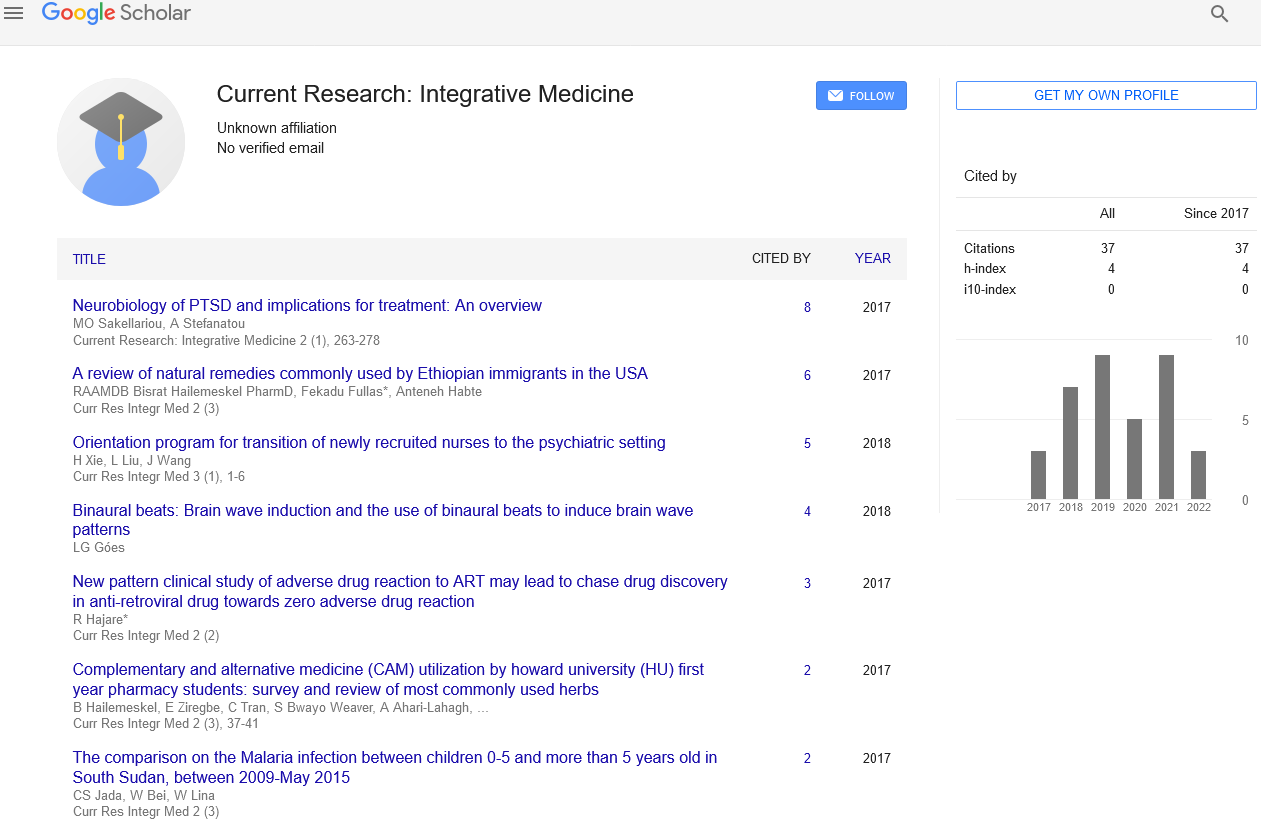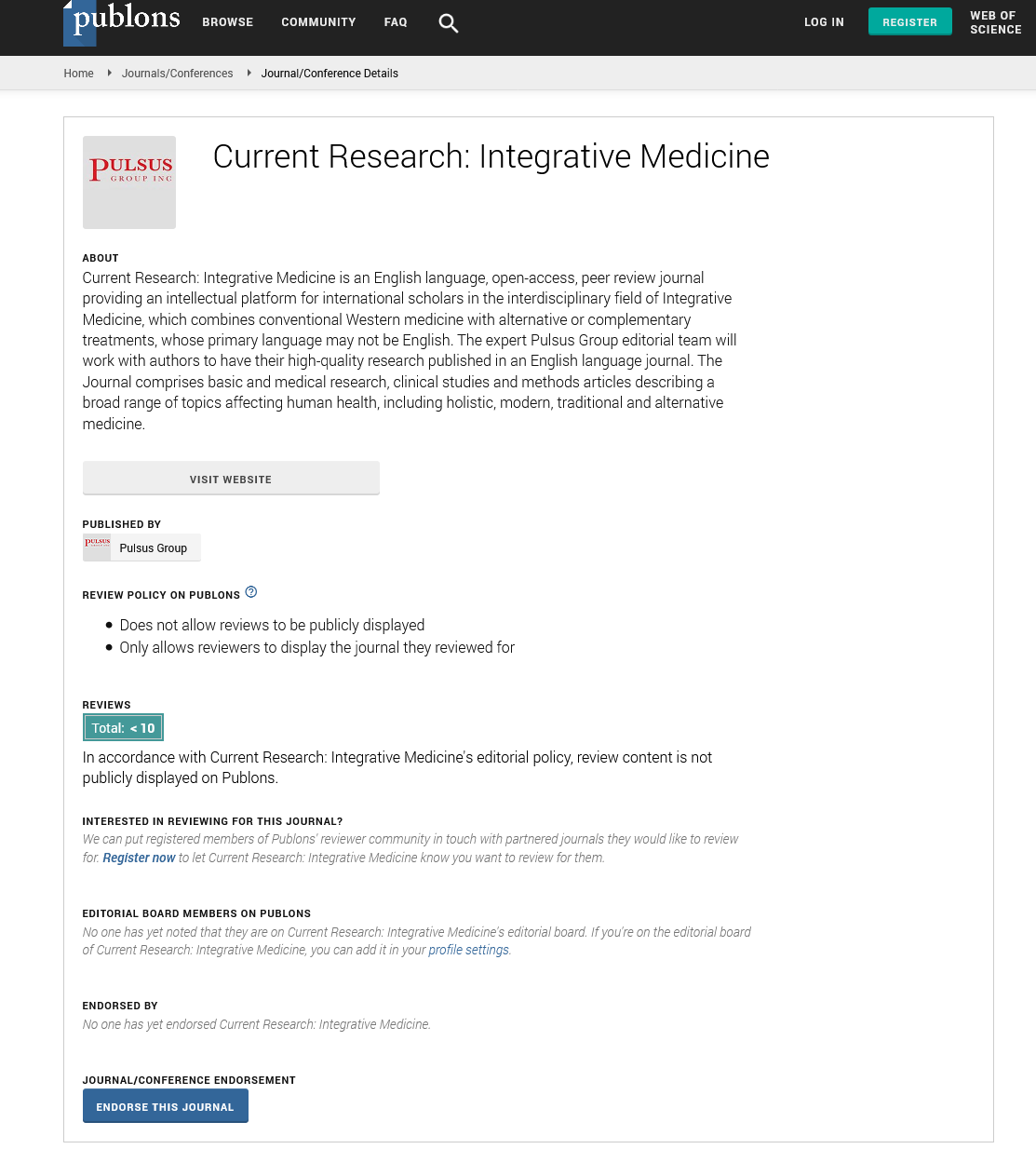
Sign up for email alert when new content gets added: Sign up
Screening of crop seedlings to salinity stress tolerance: The case of Pisum sativum var. abyssinicum A. Braun in Ethiopia
World Biotechnology Congress
July 16-17, 2018 Berlin, Germany
Berhane Gebreslassie Gebreegziabher and Berhanu Abraha Tsegay
Bahir Dar University, Ethiopia
Posters & Accepted Abstracts: J Med Biotechnol
Abstract :
Dekoko (Pisum sativum var. abyssinicum) is one of the most important food legumes grown in south Tigray and north Wollo, northern Ethiopia. It is one among the most important food legumes in terms of price and protein content. It grows alone and mixed with many cereal crops growing in north Ethiopia. This study was conducted with the objective of selecting tolerant and relatively high yielding P. sativum var. abyssinicum collections under different salt (NaCl) concentrations at laboratory conditions. The seeds of the six collections were obtained from four districts; two regional states of north Ethiopia with different attitudinal ranges 1868 m a.s.l. being the lowest and 2457 m a.s.l. the highest. The six on farm vigorously growing local collections, three from Ofla (T-001/08OF, T-002/08OF and, T-003/08OF), one from Sirinka (T-025/08Sr), one from Emba-Alaje (TA-026/15E/A), and one from Endamohoni (T-023/15MW) were studied for salt stress tolerances in controlled condition by priming in four salt treatment levels (5 dS/m, 7 dS/m, 9 dS/m, and 15 dS/m). Distilled water (0 dS/m) was used as control. 50 surface sterilized seeds per petri dish were sown for the four salt treatments and the control. Collections T-001/08 from Ofla and T-023/08 from Endamohoni showed good growth performance at 5 dS/m. However, T-025/08Sr from Sirinka and TA-026/15E/A from Emba-Alaje responded positively up to 7dS/m. At higher salinity level (9 dS/m) growth features decreased with increasing salinity stress. But, T-023/15MW, T-001/08OF, T-025/08Sr followed by TA-026/15E/A from lower to the higher resistances, respectively, could withstand lower (5 dS/m) to medium (7 dS/m) concentrations of salinity as compared to the other collections.
Biography :
Berhane Gebreslassie has his expertise in plant physiology and particularly of the legume crops physiology in improving the agronomic performances and yield increment in this climatic change scenario era. His experience both in Academic and research works on saline areas of the tropics and sub-tropics creates new pathways for improving legume crops production and productivity. He started is study on salt priming particularly of sodium chloride ( NaCl) at different concentration for optimization of salt stress tolerance that trigger rapid biochemical and metabolic activities to tolerate the stress thereby increasing their growth starting from germination of Lathyrus sativus L. and Pisum sativum var. abyssinicum. This approach is responsive to all stakeholders and has a different way of focusing on crops challenged by many factors in the nowadays climate changed world. Thus, take measures that enable them to tolerate and produce good yields requires a scientific research for better solution and recommendation.
E-mail: birie2006@gmail.com





